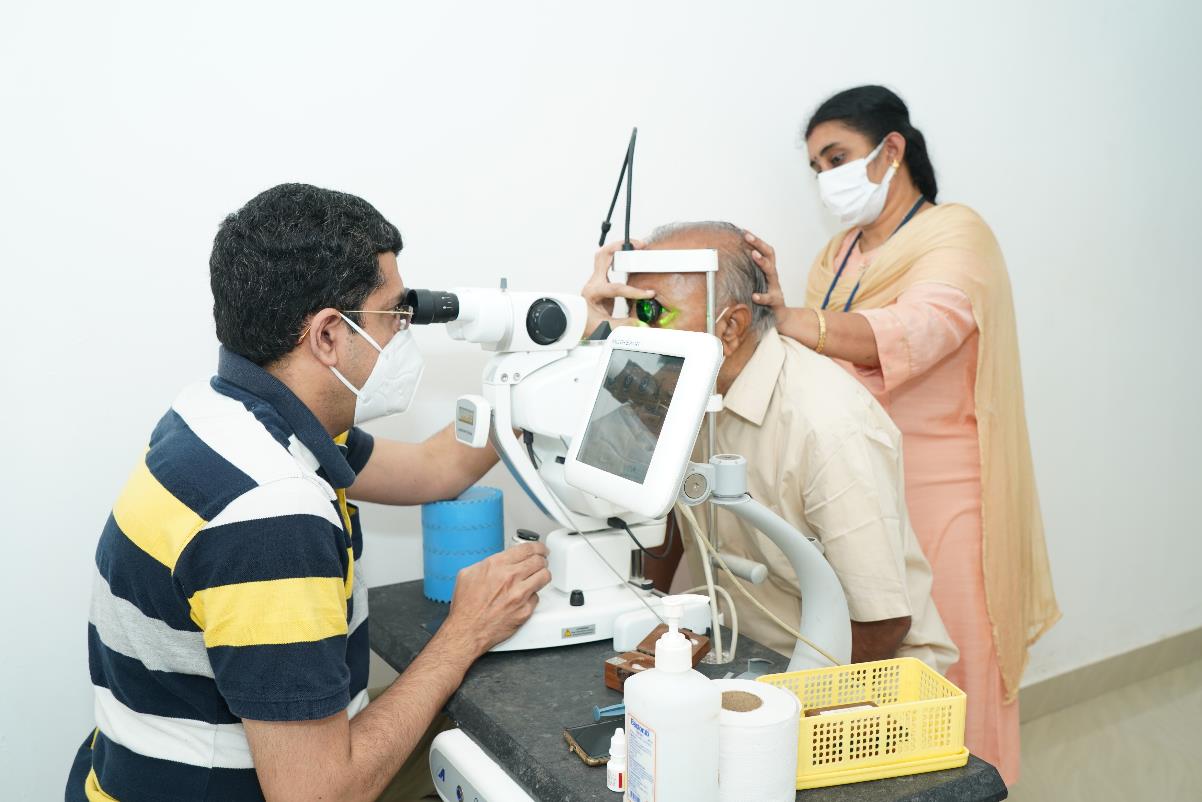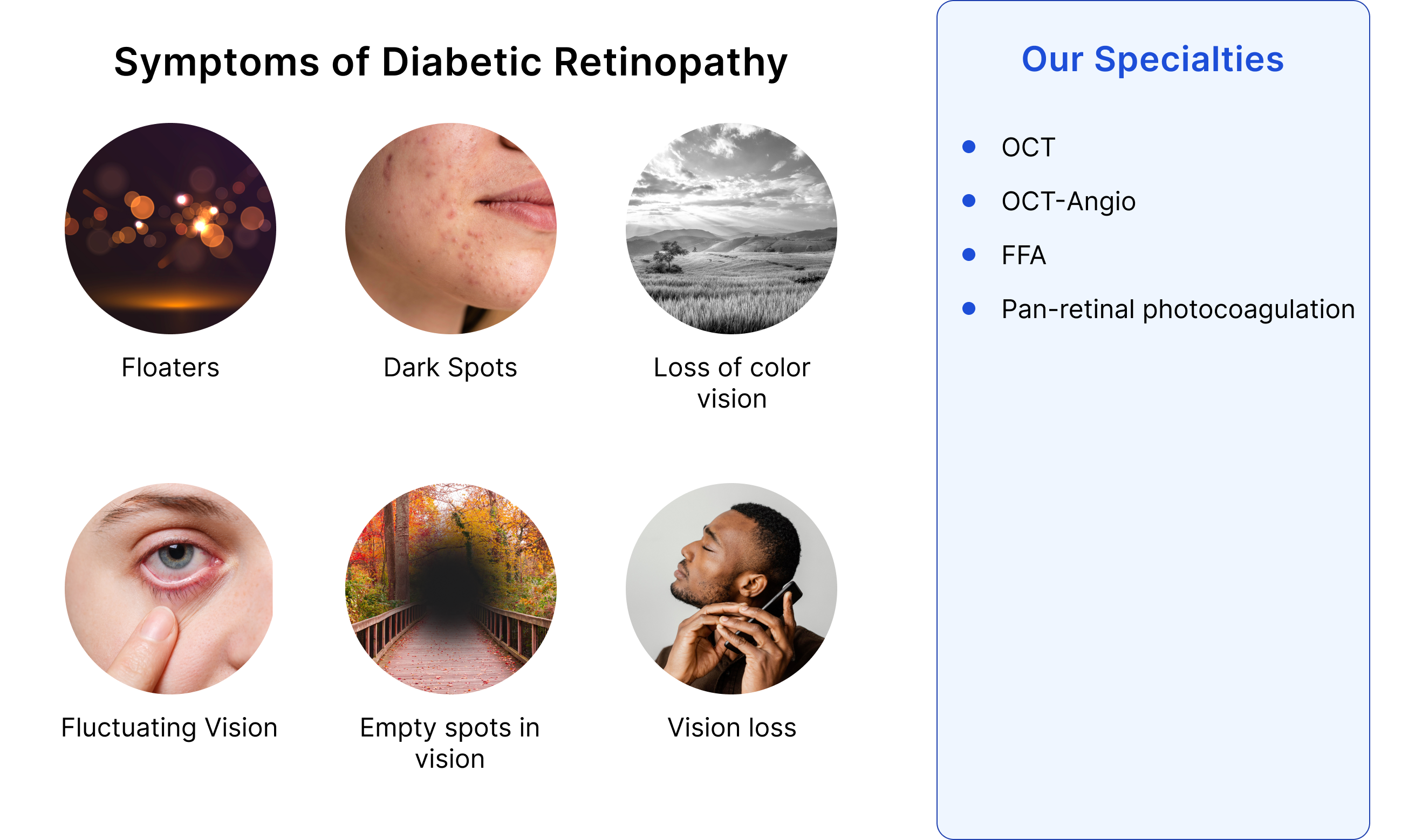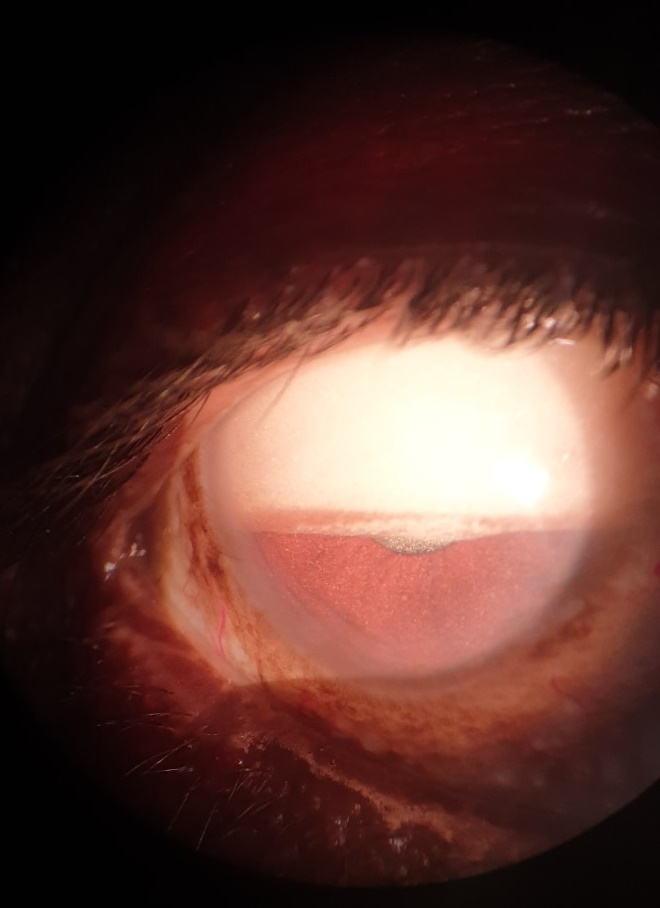
Diabetic Retinopathy
Diabetic retinopathy occurs when the blood vessels in the retina get blocked and discharges fluid, affecting the vision. It is very important for patients with diabetes to have their eyes checked regularly so that eye problems can be detected and treated early.

Do all diabetics develop Diabetic Retinopathy?
Based on our experience of handling patients, about 50-60% of diabetic patients develop retinal problems. So, it’s better to be cautious about it than being late in identifying it.
What type of diabetic patients are more likely to develop Diabetic Retinopathy?
Patients who got diabetic at a young age, those who have an uncontrolled diabetes level, and those with renal problems in Diabetes, have more chances of Diabetic Retinopathy.
How can I protect my vision from being affected by Diabetic Retinopathy?
The best way to control is to get yourself diagnosed early by expert doctors. If you have diabetes, it is recommended to get your eyes checked at least once a year.
How is the treatment at your hospital different from others?
Not just for Diabetic Retinopathy, our treatment for any ophthalmic patient starts with a comprehensive eye examination. Our experienced doctors are trained for looking at the front of the eye and the back of the eye that helps them identify diabetic retinopathy even during normal eye examination.
In fact, we have identified diabetic retinopathy in patients when they weren’t aware that they have diabetes.
What are the diagnostics do you have, for Diabetic Retinopathy?
We have the advanced retinal scanners that help detect the ailment even without patients eyes being dilated. We also have other technologies that can identify complications early, so patients can be treated on time and their vision being saved.
What diagnostic tools do you use?
We use Direct ophthalmoscopy, indirect ophthalmoscopy, convex imaging, OCT angiography.
Do you do surgeries at your hospital for Diabetic Retinopathy?
Yes. But it is mostly for patients who come to us very late. In other patients, our endeavour is always to treat them well, so they don’t end up needing a surgery. Even in the case of surgeries patients do not need suturing. You can resume your normal work within 2-3 days of undergoing the surgery.
Retinal laser is also a very effective way for treating diabetic retinopathy. We also use Anti VEGF drugs to block the VEGF action and helps improve the condition in some cases. Local anesthetic eye drops are instilled, and Anti VEGF drug is administered into the eye. It is an easy daycare procedure allowing patients to resume normal activity from the next day.

FFA

Silicone oil
